Dutch are falling out of love with 'shared space schemes'published at 10:32
Mr Taylor says the Dutch are falling out of love with the "shared space schemes".
Ms Hutchison says the schemes are not designed for busy town centres.
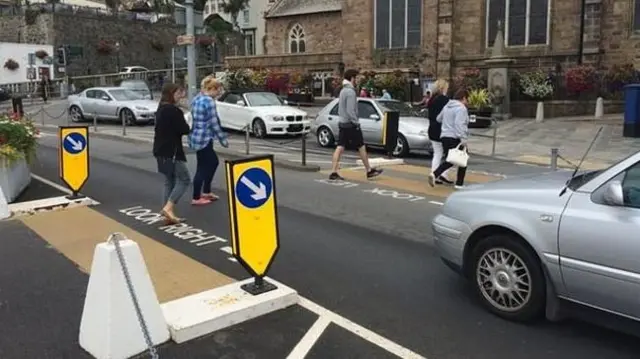
PLEASE SCROLL DOWN FOR LIVE TEXT COVERAGE
MSPs took evidence on petitions calling for a a moratorium on shared space schemes, protection of In Care Survivors Service Scotland and on Mycoplasma Fermentans in regressive autism.
The issue of calls for the UK to accommodate 3,000 unaccompanied refugee children and recent research by Pinsent Masons regarding the oil and gas industry were raised in topical questions.
The Pentland Hills Regional Park Boundary Bill was debated for the first time
The Scottish government led a debate on UK government’s controversial Trade Union Bill
MSPs participated in a debate marking Holocaust Memorial Day 2016
Craig Hutchison and Colin Bell
Mr Taylor says the Dutch are falling out of love with the "shared space schemes".
Ms Hutchison says the schemes are not designed for busy town centres.

Margaret Hutchison asks: "Where the recourse is for us?"
Ms Hutchison says councils have carte blanche to do what they please.
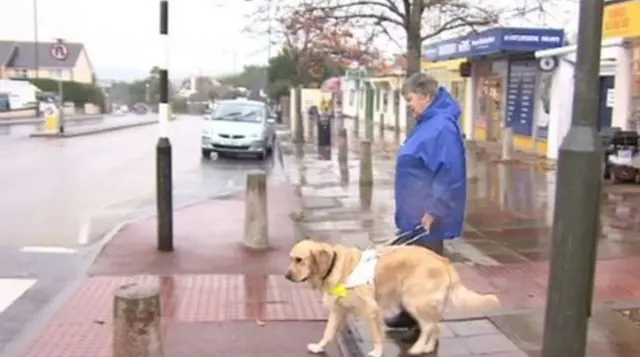
Mr Taylor says: "All we are asking for is a safe means for crossing our streets."
Its not just blind people but a lot of other groups are affected as well he says.
Mr Taylor says a nine year old girl was killed in Swindon because she thought she had priority at a 'courtesy crossing'.
Mr Taylor says councils are having to do u-turns to reinstall controlled crossings at great expense.
SNP MSP Angus Macdonald says the responsibility lies with local authorities.
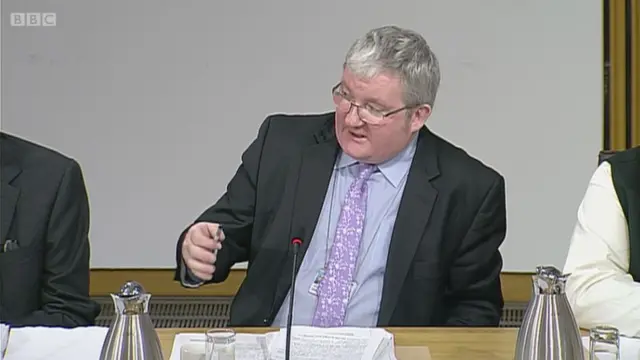
Mr Taylor says the Scottish government's Designing Streets policy statement says blind people must have controlled crossings.
He says East Dunabartonshire Council only conducted a ticked box exercise in relation to consultation.
Lord Holmes's reports recommends:
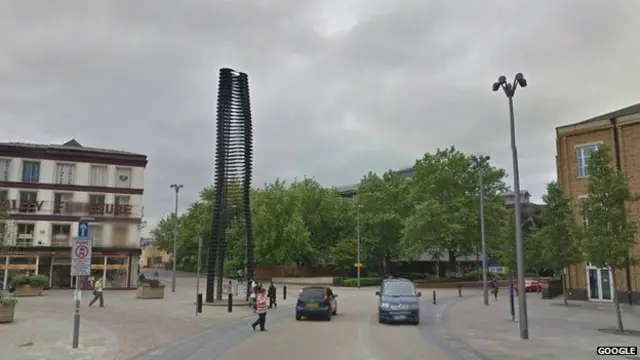 Image source, Google
Image source, GoogleShared spaces, such as this one in Gloucester, have been criticised for increasing the chance of accidents
Last Summer a report from a former Paralympian called for plans for further "shared spaces" for drivers and pedestrians in urban areas to be put on holds, pedestrian crossings and even kerbs.
Lord Holmes of Richmond, who is blind, commissioned a survey of 600 people which suggested that 63% rated their experience of shared spaces as poor.
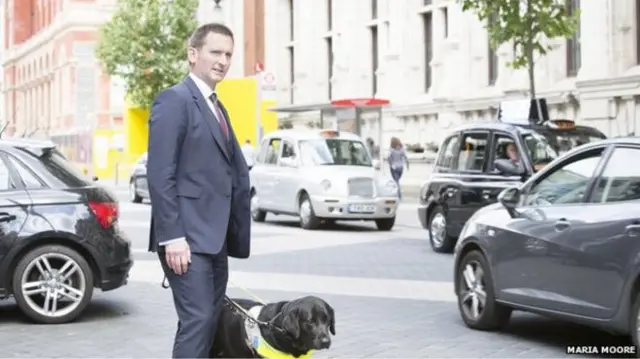 Image source, Maria Moore
Image source, Maria MooreLord Holmes' report is critical of the concept of "shared spaces
Lord Holmes said he hoped the study would change attitudes to "these dangerous and costly planning follies".
The report also found more than a third actively avoided shared spaces and there was a significant under-reporting of accidents in such areas.
Margaret Hutchison says the problems faced in Kirkintilloch if you are blind or disabled or deaf blind are exactly the same as in Kinross or elsewhere.
Ms Hutchison says she has been trained with her guide dog to walk around Kirkintilloch, her home town.
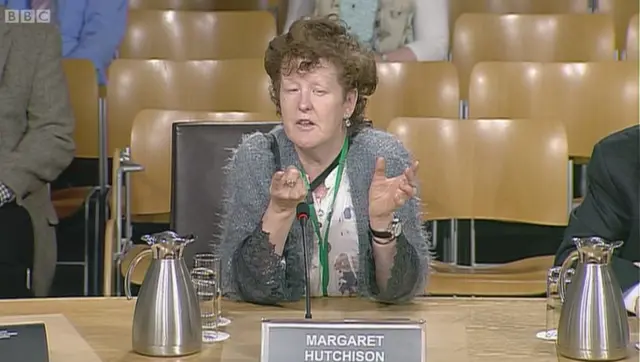
She says she cannot do that anymore as the dog as is confused by the changes brought in.
Ms Hutchison says she really does not need this to make her life more difficult.
She says she is entitled to walk down her street to the town centre the same as anyone else.
Petitoner Alexander Taylor berates the lack of consultation from the council.
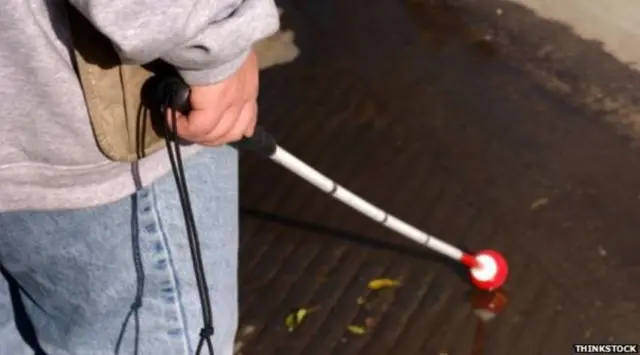 Image source, Thinkstock
Image source, ThinkstockMr Taylor says people are frightened to come out of their houses due to "shared space schemes".
He says the schemes are not a success anywhere.
Quote MessageThe biggest systematic institutionalised discrimination we've ever seen anywhere in the UK
Alexander Taylor, cites quote, Petitioner on shared space scheme
Shared space is an urban design concept that is defined in the Scottish government's Designing Streets, external policy statement as "…a street or place accessible to both pedestrians and vehicles that is designed to enable pedestrians to move more freely by reducing traffic management features that tend to encourage users of vehicles to assume priority."
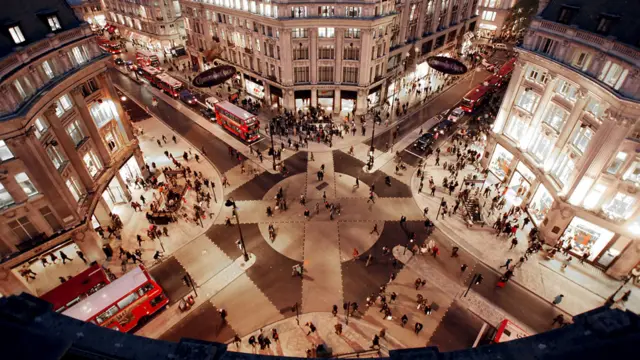 Image source, bbc
Image source, bbcVisualisation of a shared space in London
The idea of shared space is generally acknowledged as originating in The Netherlands as part of the woonerf (living street/recreation area) concept developed during the 1970's
It is important to note that Dutch traffic law differs from that in the UK so that Dutch pedestrians can use the full width of a road in a woonerf and cars are restricted to walking speed.
Mr Taylor says the "courtesy crossings" in "shared spaces" is "like playing Russian roulette".
East Dunbartonshire Council wanted to change the Catherine Street junction in Kirkintilloch and remove traffic lights, barriers, kerbs and crossings.
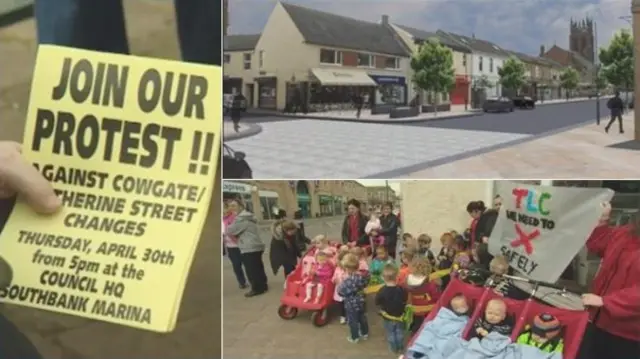 Image source, bbc
Image source, bbcLocal people and disability groups had protested against plans to scrap controlled crossings
This "shared space" plan, where traffic and pedestrians share right of way, is aimed at improving safety.
Following protests from local people, controlled crossings are to be kept.
Petitioner Alexander Taylor says though he commends the Scottish Parliament on its democracy in having him here but he is here due to the lack of democracy in local government on the issue of 'shared spaces'.
Mr Taylor says at the moment people with disabilities can make their way around town safely, whether blind or suffering from dementia.
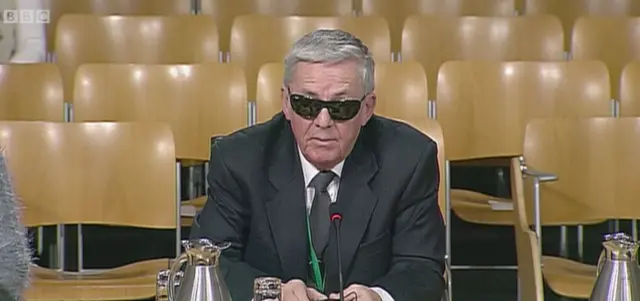
The council proposes to remove all pedestrian crossings, road markings and pavements and replace them with "courtesy crossings".
Traffic are under no legal obligation to stop at those crossings, he says.
"I am being denied access to my town centre."
Petitioner Alexander Taylor and Margaret Hutchison are finally introduced by Public Petitions Committee convener Michael McMahon.
Mr Taylor says his petition stems from my experience with East Dunbartonshire Council with whom I have tried to engage during the past 15 months over a proposed Shared Space Scheme in Kirkintilloch without success.
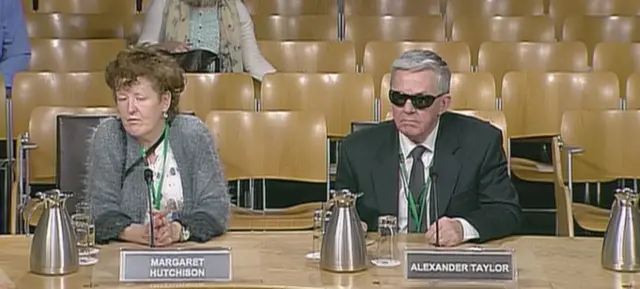
"As a member of the National Federation of the Blind I am able to get information on the many schemes throughout the country and I have informed all local Councillors on a regular basis of all the many accidents which have taken place where schemes have been introduced.
"I have the support of East Dunbartonshire Visibly Impaired peoples Forum, The National Federation of the blind, The RNIB, The Access Panel, The Scottish Disabled Equality Forum, Visibility, Deaf Blind Scotland, Guide Dogs UK, All the local traders, Parents whose children attend local schools, together with 99% of the public, yet we are being ignored."
The petitioners claim "Shared space" schemes are designing many blind, deaf-blind, disabled, and other vulnerable people out of their town centres, as due to uncontrolled Courtesy Crossings they can no longer access their High Street.
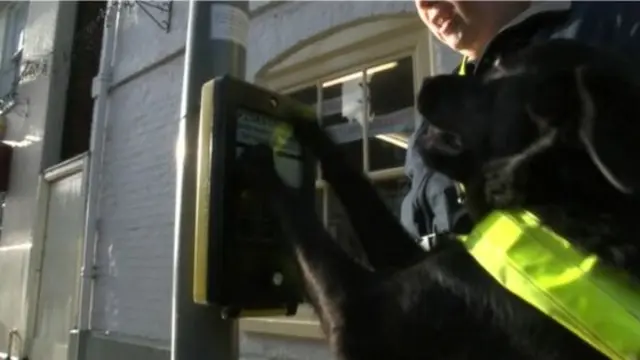 Image source, BC
Image source, BCShared space schemes reduce traffic management features like pedestrian crossings
They are aware of at least 70 reports from across the UK detailing the dangers that shared space schemes can present, including fatalities and injuries suffered by vulnerable pedestrians.
The committee will begin by taking evidence no PE1595 , external by Alexander Taylor calling for a moratorium on shared space schemes until safety concerns have been addressed.
Alexander Taylory and Margaret Hutchison are giving evidence.
The Public Petitions Committee, external will take evidence on petitions calling for a a moratorium on shared space schemes, protection of In Care Survivors Service Scotland and on Mycoplasma Fermentans in regressive autism.
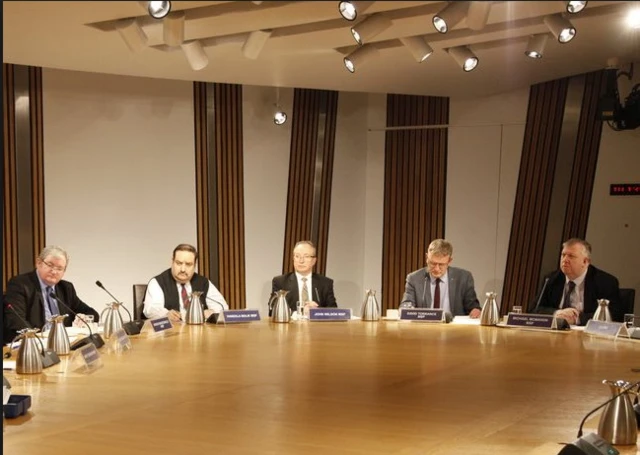 Image source, Scottish Parliament
Image source, Scottish ParliamentPublic Petitions Committee
MSPs will then consider a petition on on adult consensual incest (ACI) before moving to current petitions.
The Public Petitions Committee will shortly take evidence on petitions calling for a moratorium on 'shared spaced schemes, the protection of In Care Survivors Service Scotland and Mycoplasma Fermentans and Autism.
It will then consider a new petition calling for the legalisation of adult consensual incest (ACI).
Topical questions will see the issue of calls for the UK to accommodate 3,000 unaccompanied refugee children and recent research by Pinsent Masons regarding the oil and gas industry raised.
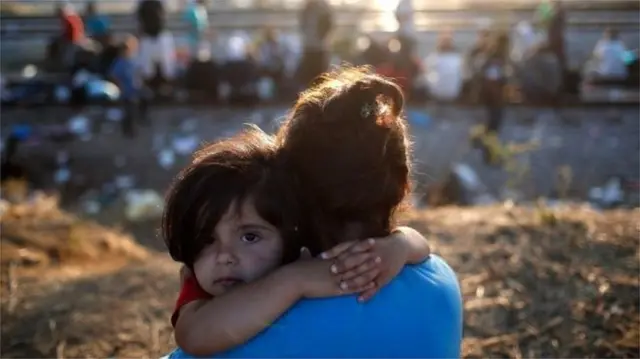 Image source, Getty Images
Image source, Getty ImagesCalls for the UK to accommodate 3,000 unaccompanied refugee children will be raised in topical questions.
The Pentland Hills Regional Park Boundary Bill will be debated for the first time.
The Scottish government will then lead a debate lambasting the controversial UK government’s Trade Union Bill.
 Image source, PA
Image source, PAThe Scottish government will lead a debate on the controversial UK government’s Trade Union Bill
SNP MSP Stewart Maxwell will then lead a debate marking Holocaust Memorial Day 2016,